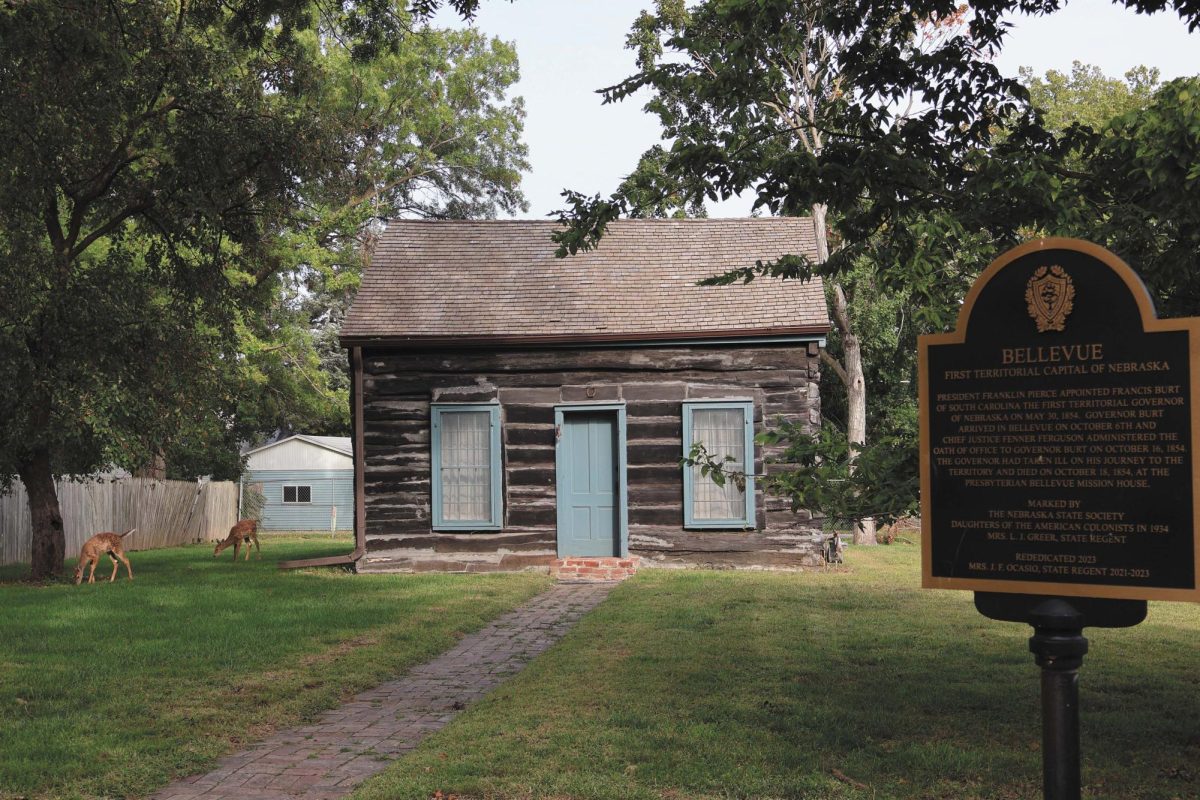Since 1859, temperatures in Nebraska have steadily risen due to climate change, resulting in increased storms, flood magnitudes and drought frequencies. Despite this, there are several local organizations interested in addressing these global warming issues, including Green Bellevue, the Green Initiative, Nebraska’s Department of Environment and Energy, and the Nature Conservancy.
“I would hope to see, you know, more people; more opportunities; for renewable energy,” Omaha Public Power District Sustainability Manager Bridgette Slavin said. “I hope to see different alternative fuels, not necessarily all renewable, but clean.”
Environmental group Green Bellevue actively plans events advocating for the preservation of natural resources by establishing gardens and planting trees, both of which combat climate change through the reduction of carbon dioxide, or CO2. Green Bellevue is an organization made up of local businesses, schools, along with agencies across Sarpy County, Nebraska. They work alongside other organizations such as the OPPD, or Omaha Public Power District to improve the state of our environment.
“We’re [Green Bellevue] encouraging our public power to listen to our voice so that they take the steps with renewable energy and not putting more CO into the atmosphere,” Green Bellevue Co-founder Don Preister said. “So working with OPPD, working with Bellevue University, working with all of these groups; and working collaboratively, not just making them seem like they’re doing the wrong things, but encouraging the right things.”
Additionally, Green Bellevue has partnered with Bellevue East High School’s Green Initiative in a joint effort to promote sustainable practices. Together the organizations created a lunchroom composting system, a program adopted throughout Bellevue high schools which focuses on waste reduction. After a week in effect, the schools have kept over 500 pounds of food from landfills and have educated the benefits of recycling to hundreds of students.
“I feel that the new lunchroom recycling program at East is both beneficial to not only our school,” junior Grace Olson said, “but also beneficial to helping educate this year’s incoming freshmen.”
Furthering Nebraska’s global awareness, The Nebraska Department of Environment and Energy (NDEE) has developed the Priority Climate Action Plan (PCAP) to aid in decreasing air pollution and greenhouse gas emissions. Through the PCAP, the NDEE encourages stakeholders to use energy-efficient practices within non-residential facilities such as removing carbon from soil, and establishing solar-powered infrastructure within low-income communities.
“Nebraska is largely a rural state,” Preister said, “so we impact the Earth with our agricultural practices, with when we generate electricity from coal fire plants, with what goes into our atmosphere.”
Instituting large impacts at a smaller scale, the nonprofit The Nature Conservancy has continued to tackle global-warming by making resources available throughout the U.S., including the state of Nebraska. Within their Nebraska branch, The Nature Conservancy has collaborated with local farmers to capture carbon within soils, contributed to reduced carbon emissions, and mentored today’s youth on the importance of climate change, as well as its impact to their environment.
“Youth are the future,” Preister said, “youth are the ones that are inheriting the world that we’re now either making better or we’re contributing to climate change and to other things that degrade the Earth. So involving youth, is the heart and soul of what we need to do to help educate them, to empower them, to make the changes now.”
In addition to this, the Omaha Public Power District (OPPD) in Nebraska has also attempted to promote sustainability by providing environmentally friendly electricity generating products, along with partnering with Green Bellevue to spread awareness regarding sustainable practices. The OPPD is currently in ownership of or has power purchase agreements with more than 1,000 megawatts of renewable energy resources, including wind power, landfill gas, hydroelectric power, and solar power. However, the OPPD has shown that they still have room for improvement due to the fact that their North Omaha Coal Power Plant has been linked to coal ash pollution in the Missouri River, causing contamination in Omaha drinking water.
“You know, I think sustainability as a whole is sustaining our current world for future generations,” Slavin said. “So Omaha especially, is a newer city in comparison to the rest of the country, and we want to preserve it and sustain it for the future generations so our population can continue to grow.”
With global warming issues becoming more prevalent in recent years, organizations that continue to practice sustainability may slowly help with the issue of climate change. Nebraska’s local environmental organizations can remind their communities of the importance of making long-lasting environmental change.
“I do think that multiple people need to work together,” Olson said. “Because you can’t do something alone, and climate change is a very big problem that we’re facing today, and I feel like if we all work together it’ll help solve it a lot quicker.”




